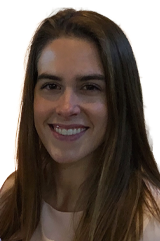Early Career Research Award PresentationFrom Controlled Environments to Clinical Reality: Evaluating How We Hear with Two Ears Objectives: Spatial hearing and binaural processing are central to communication, safety, and situational awareness, yet they remain difficult to evaluate in routine clinical practice. This presentation highlights translational research aimed at understanding how the two ears work together across a range of contexts and how these findings can inform clinical assessment and real-world performance. Specific objectives are to (1) characterize access to binaural cues in individuals with single-sided deafness using a cochlear implant (SSD+CI), (2) evaluate whether optimizing frequency-to-place mapping improves spatial hearing outcomes in SSD+CI listeners, (3) determine how different types of hearing protection devices (HPDs) influence performance in dismounted combat tasks, (4) identify hearing measures sensitive to repeated blast exposure, and (5) develop portable, clinically feasible speaker arrays that enable spatial hearing assessment in diverse practice settings. Design: This work draws on a combination of laboratory experiments, field studies, and clinical evaluations. Controlled psychoacoustic experiments were conducted with SSD+CI listeners to assess availability of interaural time and level cues under standard and frequency-aligned CI processor maps. Performance with active and passive HPDs in dismounted combat simulations was measured using GPS tracking and target engagement data, audio and video recordings, field observations, and subjective reports. A battery of boothless hearing tests—including monaural and binaural masked tone detection—were collected throughout a Close Quarter Tactics training course. Finally, prototype speaker arrays were developed and tested for reliability and feasibility in simulated and clinical spaces, with emphasis on portability, retrofitting into existing exam rooms, and reproducible presentation of spatial sound fields. Results: Across studies, SSD+CI listeners demonstrated variable but measurable access to binaural cues. Frequency-to-place alignment no change in sensitivity to interaural cues. Field experiments showed that HPDs designed to theoretically preserve spatial cues did not always translate to improved performance; however, certain active devices supported better localization and communication accuracy than traditional passive protection. Binaural tests such as NoSo/NoSπ tone detection and binaural masking release were consistently sensitive to acute changes following blast exposure, revealing temporary disruptions in binaural processing even when standard audiometric thresholds remained stable. Evaluation of portable speaker arrays demonstrated strong test–retest reliability within and across rooms, supporting their potential use for clinical assessment of spatial hearing without requiring specialized facilities. Conclusion: Together, these findings illustrate the importance of evaluating binaural hearing in ways that reflect real-world listening demands. Provision of a CI in SSD cases, selecting HPDs that amplify sound and provide some spatial cues, and incorporating sensitive binaural assessments can improve diagnostic accuracy and functional outcomes. The development of portable speaker arrays offers a practical pathway for integrating spatial hearing evaluation into routine clinical practice. This work underscores the need for clinical tools that better capture how individuals use two ears in everyday environments and highlights opportunities to bridge laboratory science with meaningful clinical application.
|

